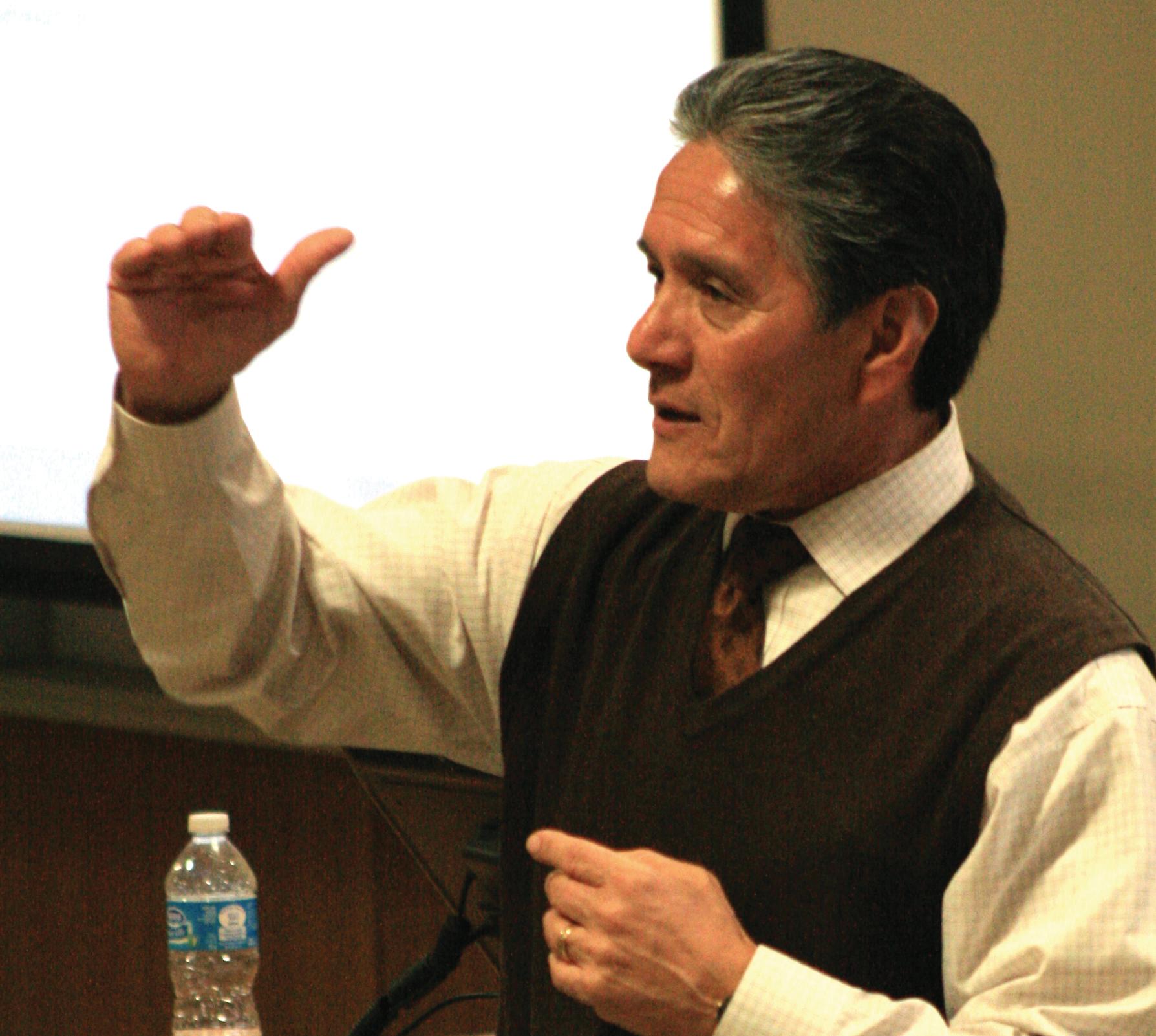Judge: Students need to be more active in their college careers
Utah’s first Hispanic federal judge spoke to about 30 students about his journey to the court bench Thursday evening in the Agricultural Sciences Building.
Judge Sam Alba, the son of immigrant parents, was the first child in his family to receive a college education. During the presentation, Judge Alba discussed how he decided to study law and how that decision has influenced his life, as well as the lives of many others.
As a magistrate judge, Judge Alba oversaw the naturalization process and ceremony for many Utah citizens. He himself had gone through the naturalization process as part of the path to earn his law degree.
“Of all the things that I did as a judge, that, to me, was probably the culmination of what I was doing on a regular basis,” he said.
Throughout his speech, Alba talked about the experiences he had throughout his education and career.
Alba attended Preston High School and served as the sophomore class president. As the only Hispanic president of a class from Preston, he jokingly referred to himself as the “real-world Pedro” of “Napoleon Dynamite” fame.
He earned his bachelor’s degree from USU, a dual major in political science and history with a minor in English. USU awarded him with an honorary doctorate for his lifetime service.
“His story is so motivational,” said Marina Hernandes, a senior in sociology and law and constitutional studies. “Even though it’s cliche, it shows that anything is possible, that any barrier can be overcome.”
“It gives me motivation to do what I’m doing,” said Aury Rosas, a sophomore studying criminal justice.
Alba’s career began in Phoenix, Ariz., where he served as a lawyer for many years. He was one of the defense lawyers of the first land fraud cases after being in his first firm for just six weeks. During this case, he worked with John Flynn, a lawyer who gained notoriety when he served as one of the defense lawyers in the U.S. Supreme Court case which requires the Miranda rights to be read to people when they are arrested.
After working the land fraud case, Alba was offered a position to work at John Flynn’s firm. He declined in order to form a firm with three other young Hispanic lawyers to create the first all-Hispanic law firm in Arizona. Later on, he worked alongside Bruce Babbitt, governor of Arizona, to appoint the first Hispanic judges in areas with large Hispanic populations.
The event was sponsored by the USU Institute of Government and Politics. Andrea Allred, IOGP assistant intern coordinator, said it is important for students to see the example of someone who follows their ambitions.
“A lot of students don’t get the opportunity to ask lawyers these types of questions,” Allred said, referring both to the question-answer part of the presentation and to the one-on-one sessions held preceding the event. Students asked the judge questions ranging from the current state of the court system to his interest in soccer.
Not all students felt like they had their questions answered. Craig Rice, a junior studying microbiology, came to the presentation because of a class he is taking.
“In class, we had a survey on judges and why we vote for people. … I would have liked to hear more about what a judge does,” Rice said.
However, the things learned were of interest to Rice. He said he was interested in how Alba helped put Hispanic judges in place in Maricopa County. Before the change, 55 judges, all white, sat over a population that was more than 50 percent Hispanic.
In addition to talking about his experiences, Alba gave those in attendance some advic
e in regard to their college careers. He discussed how, as part of the inaugural class in USU’s Honor’s program, he was challenged at every stage of the process.
“Is that happening today? It better be happening today,” Alba said. “Even if it isn’t coming from your professor, make it come from you.”
-david.berg@aggiemail.usu.edu

